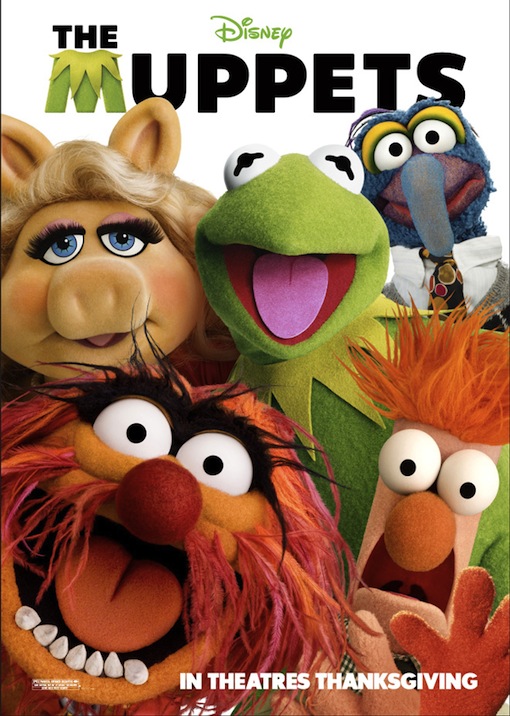Young people watch films, whether we approve of them or not and these films show something of the world we live in. They tell the modern equivalent of a story and as we all know, stories rule in this postmodern world. In youth ministry, we’ve often used specific scenes and clips from movies to communicate a certain theological truth. But that’s (I quote) ‘insufficient and dishonest’ and besides, doesn’t mean showing a clip that we endorse the whole movie? Instead of cherry picking certain scenes, we should engage with films as a whole and discuss the good, the bad and the ugly in them. Because when we look close enough, movies are a thin place where we can encounter the divine in sometimes unexpected ways.
This is, in a nutshell, the message that Steven Mitchell and Mark Williamson gave in their talk on Kingdom Films at the Youth Work Summit. They’ve set up an entire website called Reel Faith on the topic of finding faith in films. In their talk, they also showed how the Kingdom shows up in five unexpected movies: The Muppets, Breaking Dawn, Thor, Bridesmaids and Saw 3D: The final chapter. You can find the transcript of their talk here.

First of all, I agree with them on many points. I do see movies as modern stories and I know their appeal to young people. I also agree that in many movies, there are connections to the gospel, to biblical themes and to God’s story. The five movies they picked would not have been my choice, but they do actually portray interesting Kingdom themes. And I do think Steven and Mark have a good point about using just scenes from a movie because of the context you’re missing out on, although I’m not against it on principle. I just wouldn’t use a scene from a movie that I thought was in its entirety unsuitable.
But I do have a few concerns in using films in youth ministry this way (by which I mean talking about them with our young people and in some cases watching the movie together and then discussing it):
Exclusivity
Many young people watch movies, but not all of them do. I am hesitant in referring to a movie or discussing one that not everyone has seen. It will make young people who haven’t seen it feel excluded.
Pressure
If films are a constant recurring topic in our youth ministry (and I’m not saying these guys suggested that we should constantly discuss films!), I’m afraid we’re pressuring young people into watching movies. Not all of them will want to, or have the money to.
Suitability
There’s a tension in discussing movies that aren’t actually suitable for several reasons, for instance because of their content or their rating (16+ for instance). They may watch them anyway, but doesn’t discussing them also constitute some form of condoning this? If we discuss a movie like Saw for instance with our students because we assume they’ve all seen it anyway, doesn’t that communicate that it’s okay to see it? Personally, I would not discuss a movie that’s not suitable to be seen by young people, no matter how popular or how interesting from a theme-perspective.
Personal preferences
If our goal is to discuss popular movies with our young people because they will have seen them, that means we have to watch them ourselves as well. That poses a bit of a problem for me, because I have no intention of ever watching a movie like Saw for example, or any in the horror-style. And to be honest, there are many movies I simply do not want to see because of their explicit unchristian culture or simply because I won’t like them, no matter what biblical themes might be present. I’m a big fan of staying up to date on popular youth culture, but for me there’s a difference between looking at the lyrics of the latest raunchy R&B song or watching a too sexy three minute video clip or paying for a movie I really don’t want to see.
Intentionality
Last but not least, there’s the issue of what the filmmakers or scriptwriters were really trying to say. Like with works of art or literature, sometimes the critics see way more than the creator ever intended. If we want to engage in a conversation about films with our young people, we run the same risk of seeing themes, and messages that aren’t actually there. And to be able to do a movie justice in this, we’d need to read up on it and more or less ‘study it’. That seems too much focus on something that’s not Christ-centered, but maybe I’m being too harsh here…
Considering the above, my approach would be to indeed discuss suitable movies with young people, preferably by watching them together. But I wouldn’t make it a habit, or a fixed part of my youth ministry. What you could also do is make it a recurring topic of conversation in your small group, by simply asking what movies they’ve seen lately and talking about what they thought of them. That would require you to stay somewhat updated on popular movies though and that’s something you’d have to want.
(By the way, Steven and Mark only had about ten minutes to make their point, so obviously they couldn’t discuss everything there is to say on this topic. My thoughts above are therefore no criticism on their talk or even an accurate wording of what they were trying to say, merely my reflection and concerns.)
Leave A Comment